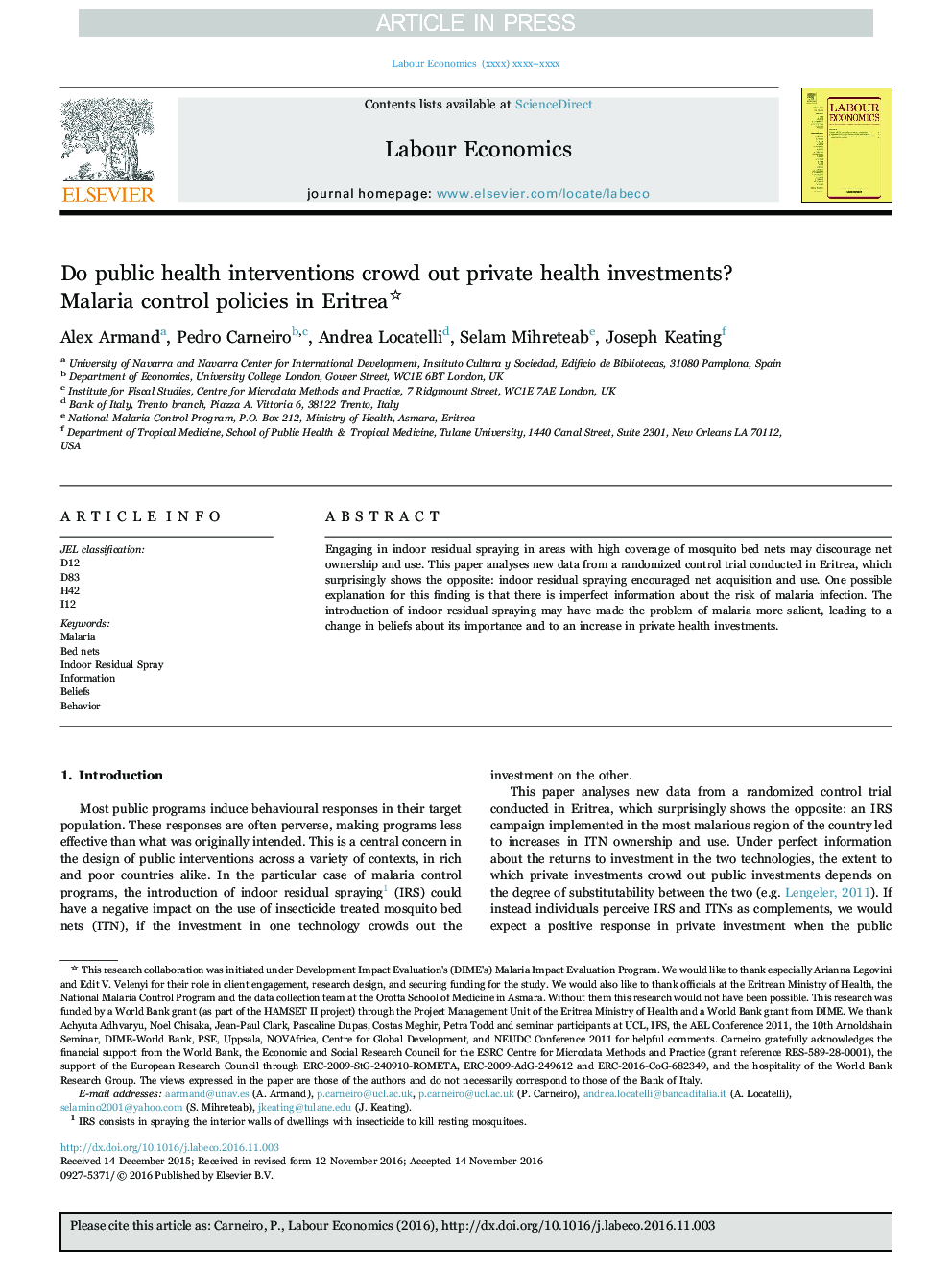| Article ID | Journal | Published Year | Pages | File Type |
|---|---|---|---|---|
| 5102098 | Labour Economics | 2017 | 9 Pages |
Abstract
Engaging in indoor residual spraying in areas with high coverage of mosquito bed nets may discourage net ownership and use. This paper analyses new data from a randomized control trial conducted in Eritrea, which surprisingly shows the opposite: indoor residual spraying encouraged net acquisition and use. One possible explanation for this finding is that there is imperfect information about the risk of malaria infection. The introduction of indoor residual spraying may have made the problem of malaria more salient, leading to a change in beliefs about its importance and to an increase in private health investments.
Related Topics
Social Sciences and Humanities
Economics, Econometrics and Finance
Economics and Econometrics
Authors
Alex Armand, Pedro Carneiro, Andrea Locatelli, Selam Mihreteab, Joseph Keating,
